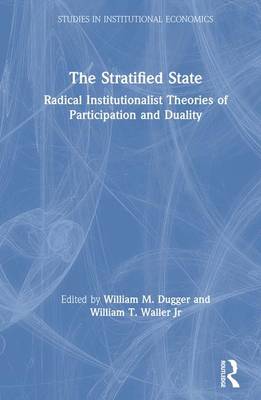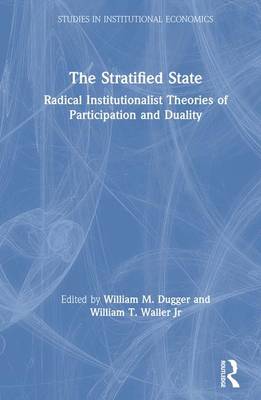
- Afhalen na 1 uur in een winkel met voorraad
- Gratis thuislevering in België vanaf € 30
- Ruim aanbod met 7 miljoen producten
- Afhalen na 1 uur in een winkel met voorraad
- Gratis thuislevering in België vanaf € 30
- Ruim aanbod met 7 miljoen producten
Zoeken
The Stratified State
Radical Institutionalist Theories of Participation and Duality
William M Dugger, William T Waller Jr
€ 155,45
+ 310 punten
Omschrijving
These essays in the purest tradition of political economy consider three major themes from the multiple relationships between the state and the economy: duality, myth, and crisis. The state is a complex mix of dualisms: the welfare versus the warfare state; the agency of both social integration and exploitation; and public versus private institutions. The editors aim to distinguish true from false dualisms. Myths in modern society are important as they enables whites to dominate blacks, men to dominate women, warplanners to dominate peacemakers, the rich to dominate the poor. The editors consider the myth that the state and the market are separate, the state as a single, monolithic structure, and that we can all identify and share in a national interest. The crisis of the state is the third major theme. The state is in crisis, because we have no fully-developed theory of the state, because its welfare and warfare functions are undergoing profound change. The essays are all written from the point of view of radical institutionalism and emphasise the need for increased participation in the policymaking and policy evaluating processes of the state.
Specificaties
Betrokkenen
- Auteur(s):
- Uitgeverij:
Inhoud
- Aantal bladzijden:
- 280
- Taal:
- Engels
- Reeks:
Eigenschappen
- Productcode (EAN):
- 9781563240201
- Verschijningsdatum:
- 30/04/1993
- Uitvoering:
- Hardcover
- Formaat:
- Genaaid
- Afmetingen:
- 152 mm x 229 mm
- Gewicht:
- 498 g

Alleen bij Standaard Boekhandel
+ 310 punten op je klantenkaart van Standaard Boekhandel
Beoordelingen
We publiceren alleen reviews die voldoen aan de voorwaarden voor reviews. Bekijk onze voorwaarden voor reviews.











